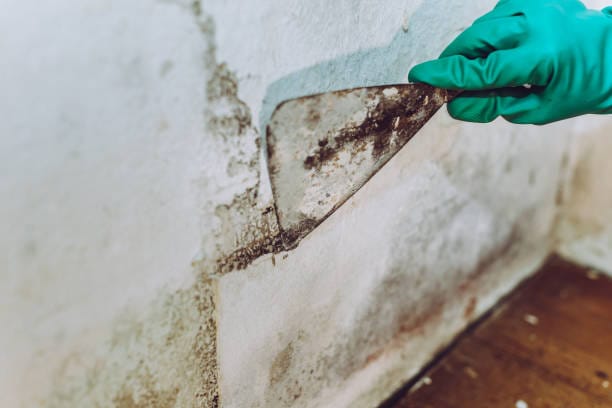Housing Disrepair Claims & Solutions | Get Compensation Today
Understanding Your Right to Damp and Mold Compensation in the UK
Recent Blogs
Every renter has the right to have a place that is
Can you sue for emotional distress in the UK? While
Struggling with housing disrepair? Learn how to find the best
Housing benefits have been important for helping individuals and families
Understanding Your Right to Damp and Mold Compensation in the UK
If you’re a UK resident dealing with mold and damp issues in your home, you could be entitled to damp and mold compensation. Mold and dampness aren’t just nuisances—they pose significant risks to your health and the safety of your property. That’s why it’s crucial to understand your rights under UK law and take action when necessary.
In this article, we’ll walk you through identifying mold and damp problems, understanding landlord responsibilities, and knowing how to pursue compensation if you’re affected. By understanding mold compensation claims, you can better navigate your situation.
UK Regulations on Damp and Mold Compensation
Several UK laws cover mold and damp in residential properties. The most relevant is the Housing Act 2004, which requires landlords to maintain safe and habitable living conditions. This act introduced the Decent Homes Standard, which outlines the basic requirements for a property, including the prevention of dampness and mold.
If a landlord fails to meet these standards, tenants can seek mold compensation claims for the damages. This might include the cost of repairs, replacing damaged items, or health-related expenses. Landlords are also responsible for fixing any structural issues, such as leaks or poor ventilation, that caused the problem in the first place. Understanding these legal obligations for landlords can empower you to take action.
Spotting Mold and Dampness Early
Common signs of mold and dampness include:
- Musty smells
- Patches of mold on walls or ceilings
- Condensation on windows
- Damp stains or peeling paint
These issues often result from poor ventilation, leaks, or inadequate insulation. Both landlords and tenants should be vigilant in maintaining the property and conducting regular inspections to prevent problems from escalating. Understanding signs of mold and dampness is crucial for early intervention.
Health Risks of Mold Exposure
Mold isn’t just unsightly—it can be hazardous to your health. Exposure to mold spores may cause:
- Respiratory problems
- Allergic reactions
- Asthma
- Severe infections for those with compromised immune systems

The health risks of mold are particularly concerning for children, the elderly, and individuals with pre-existing conditions. Prolonged exposure to dampness in homes can lead to more severe health issues, which is why it’s critical to address mold and damp issues as soon as they arise, protecting the well-being of everyone in the home.
Responsibilities of Landlords and Tenants
Under UK law, landlords must keep their properties fit for habitation. This includes addressing mold and damp issues, as required by the Housing Act 2004, the Landlord and Tenant Act 1985, and the Homes (Fitness for Human Habitation) Act 2018.
Landlords are legally obligated to conduct regular property maintenance and respond promptly to tenant complaints regarding mold and dampness. Tenants, on the other hand, are responsible for properly ventilating the property, using heating systems as required, and reporting issues promptly. If tenants fail to do so, they might weaken their compensation claim. Knowing the legal responsibilities of tenants can aid in preventing disputes.
What to Do If You Find Mold or Dampness
If you discover mold or dampness, here are the steps to follow:
- Notify the landlord – Provide details, including photos, about the location and severity of the problem.
- Document everything – Keep a record of communication and any actions taken by the landlord.
- Seek a formal assessment – Hire a surveyor if the landlord fails to act.
If the landlord doesn’t respond, consider escalating the complaint to local authorities or seeking legal advice. Consulting with an expert can provide you with valuable insight into how to report mold issues effectively.
Making a Compensation Claim for Mold and Damp
If the landlord fails to address the problem, you may be entitled to compensation for health issues from mold. Here’s how to make a claim:
- Collect evidence – Document the damage with photos and keep records of your communications with the landlord.
- Obtain an expert assessment – Hire a professional to evaluate the issue and provide a report.
- Calculate damages – Factor in the cost of repairs, replacement of items, and health expenses.
- Submit a formal claim – Write a detailed claim to the landlord, specifying the compensation amount.
- Negotiate or escalate – If the landlord doesn’t respond, take the matter to a tribunal or court.
The success of your mold compensation claims depends on your ability to provide evidence and demonstrate the landlord’s negligence. Consulting with a legal professional can be beneficial to navigate the complexities of making a mold and damp compensation claim.
Factors That Affect Compensation Claims
Several factors can influence whether you succeed in a mold and damp compensation claim:
- Timely Reporting – Report mold and damp issues as soon as you spot them.
- Detailed Documentation – Provide clear evidence, including photos, health records, and expert assessments.
- Landlord Response – If the landlord has made reasonable efforts to fix the problem, proving negligence may be difficult.
- Tenant’s Conduct – Tenants are expected to maintain proper ventilation and report problems promptly. Failure to uphold cleanliness can affect the claim.
By following these steps, you can increase your chances of a successful claim.
Conclusion: Take Action Against Mold and Damp
Dealing with mold and damp issues can be stressful, but knowing your rights can make all the difference. Whether you’re a tenant or a landlord, addressing these problems quickly ensures a safe living environment. Remember, it’s not just about financial compensation—it’s about your health.
If you are facing mold in rental properties, don’t hesitate to seek professional assistance or legal advice. Making a compensation claim can be complex, but with the proper support and documentation, you can ensure that your rights are protected and that you receive the compensation you are entitled to.
